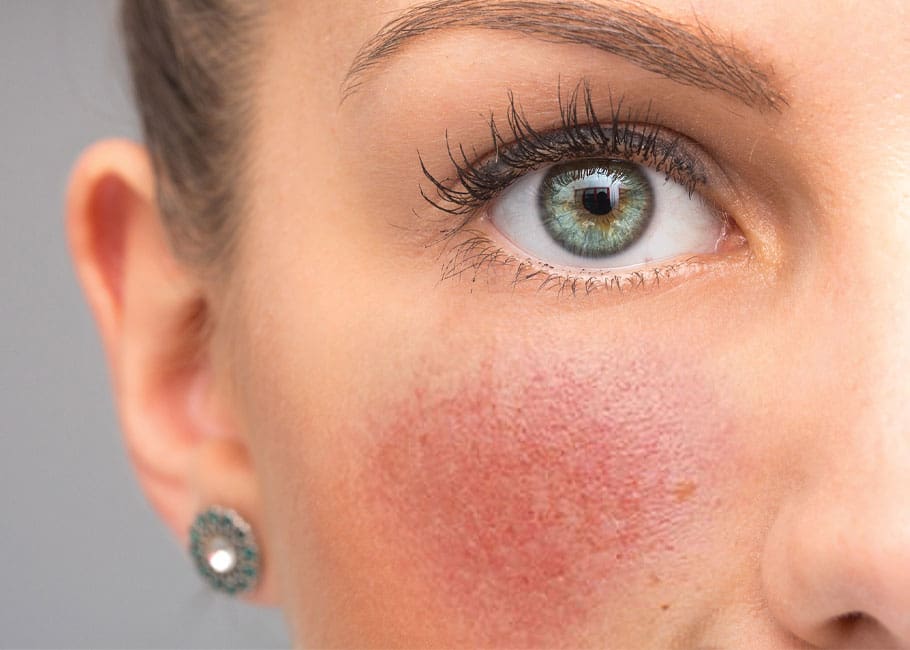
At first blush
Taking steps to control rosacea
More than 3 million Canadians are affected by rosacea, a chronic skin condition that causes redness and swelling, most commonly in the cheeks, nose, chin and forehead. It can start with short periods of redness or blushing, but may become longer-lasting and more visible. It is sometimes misdiagnosed as adult acne. More than half of those affected by one of the four forms of rosacea may have symptoms of the eye that include bloodshot eyes that feel gritty. While there is no known cure, symptoms can be reduced and managed through medication and lifestyle changes.
Who is affected?
Although men and women are equally likely to have rosacea, those between the ages of 45 and 60 years are most affected, as are those with fair skin, such as people of Northern and Eastern European descent. The true cause is unknown, but both genetic and environmental factors may play a part.
What can be done?
To avoid the many triggers of rosacea flare-ups, keep away from the following:
- ● Sunlight (use sunscreen)
- ● Alcohol
- ● Hot beverages, spicy foods, vinegar
- ● Use of topical alcohol- or acetone-based products or steroid creams
- ● Emotional stress
- ● Medications such as calcium channel blockers, niacin and sildenafil
Some medications may be helpful, such as certain oral antibiotics, topical antibiotics, azelaic acid, tretinoin or medications that cause blood vessels to constrict and reduce redness. In some cases, oral isotretinoin, most commonly used for acne, is prescribed, or laser therapy can be used to reduce red blood vessels.
If you or someone you know might be affected, recognizing this condition and getting help are the first steps toward regaining control of your life. For more information, visit the Acne and Rosacea Society of Canada at Rosaceahelp.ca.
Emotional effects
What can be worse than having rosacea is the misconceptions of others, such as the belief that someone with rosacea has poor hygiene or drinks too much alcohol. It’s no surprise that people with rosacea often deal with emotional problems beyond embarrassment and low self-esteem. By avoiding triggers combined with the right treatment, the condition can be kept at bay.—LV

Lawrence Varga, B.Sc.Phm., is assistant vice president of Costco Pharmacy.
Joseph Hanna, B.Sc. Phm., CDE, CGP, director of Costco Pharmacy, contributed to this column.
Pharmacies in Costco’s Quebec locations are independently owned and operated by pharmacists.

